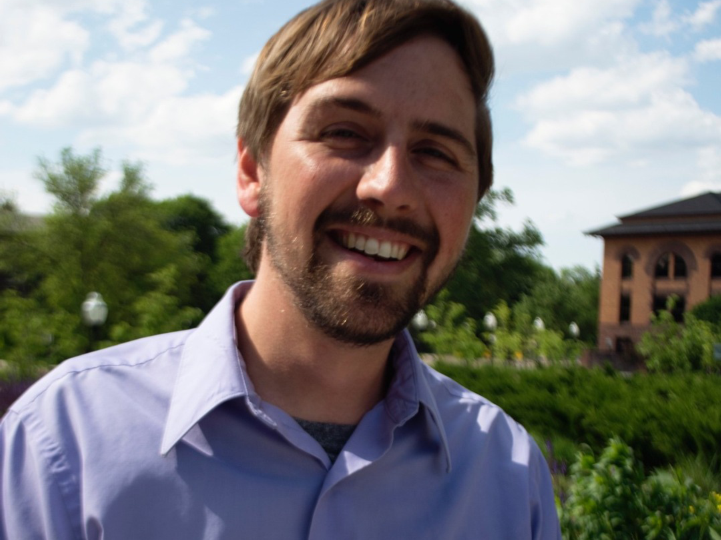
Critical Evaluation of Systems of Policy and Practice for Religious, Secular, and Spiritual Identities
February 1, 2022
Critical Religious Studies in Higher Education: An Ongoing Column in JCC Connexions
Jenny Small is the editor of this column and welcomes J. Cody Nielsen as author of this post.
A critical lens of study on religious, secular, and spiritual identities (RSSIs) continues to grow. Birthed by a small but growing number of researchers and scholars in the field, and with the assistance of organizations which are committed to efforts toward religious pluralism and civil rights, the movement to justify why RSSIs should be taken as seriously as other areas of diversity and identity is an on-going process.
As Sachi Edwards (2021) previously mentioned in this column, existing higher education RSSI research relies heavily on self-identification for determining a number of variables. This self-labeling of identity, while important to a point, has limitations and shortcomings. I refer you to Edwards’s article should you wish to read more.
Addressing the System and Its Policies
The concern of this column lays tangential to that previous entry, looking more broadly at meta questions of institutions and their climates. Since 2011’s Cultivating the Spirit: How College can Enhance Students’ Inner Lives (Astin, Astin, & Lindholm, 2011),and including the most recent data from the Interfaith Diversity Experiences and Attitudes Longitudinal Survey (IDEALS; Interfaith Youth Core, n.d.), almost all research has focused only on student expressions of identity. Unsurprisingly, this focus appears to be aligned with a general posture on campus that the focus of professionals is only on “the students.” But what happens when we fail to address the system and its policies and practices?
Critical theory of any form should address integral questions about the policies and practices which govern the climate of our institutions and world. This has previously been addressed in other forms of critical theory, such as critical race theory (CRT) and Latina/o Critical Theory (LatCrit), and should be considered as a part of the RSSI research agenda. But as of yet, no major study investigating RSSIs that I have found has attempted to evaluate for the conditions of the campus in the form of the policies and practices which affect not only the student experience, but the entire campus.
A "Four Pillar" Approach
In attempts to dismantle issues of Christian hegemony, privilege, and supremacy on campus, there is no more impactful way to address these issues than through our campus policies and practices. As Jenny Small, the editor of this column, and I have previously written, a “Four Pillar” approach to these concerns on campus appears to be relevant and helpful (Nielsen & Small, 2019). Everything from dietary options to calendaring beyond Christian religious holidays begin to make the difference in the experience of students with non-Christian identities on campuses.
Food Options
But the question is how and what difference do policy and practice changes actually make for RSSIs? For example, no data have been compiled to consider the student satisfaction rates at institutions in which kosher options are available versus those where it is not. Furthermore, data related to the quality of said food options, as well as the conditions of kosher dining options as a normalized component of campus food options, are absent. Researchers need to uncover the related effects on a campus when such a commitment is made and what its direct impacts are upon the student body.
Campus Calendar
The same can be true of the campus calendar and its impacts upon the entire campus community. I have been fortunate to participate in the passage of two state bills related to religious equity in academic accommodations, in Washington and Utah, with further bills moving along in states like Ohio, Massachusetts, and Michigan. These bills are related to the lack of institutional willingness to provide already guaranteed First Amendment protections to students on campus. At institutions in which I have served, non-Christians frequently are required to take vacation days in order to meet their religious obligations. And while no employer is allowed to deny an employee of their religious practice, the consequences forcing non-Christians to use vacation will at times result in individuals simply forgoing religious practices. Some institutions, including the one I currently serve, offer three floating religious holidays. But this attempt at equality will never achieve equity because it does not respond to the nature of religious expression and that fact that different religious communities require more days off than others.
A critical analysis of campus policies and practices would introduce a more robust understanding of the impact when campuses make the decision to not only accommodate, but to moderate the entire campus calendar to avoid these religious holidays. The need to consider our campuses’ calendars as conduits of Christian privilege can begin the conversation and revitalization efforts necessary to improve employee morale as well as student experience in more inclusive and equitable ways.
More Critical theories and Scholars Are Needed
I hold out hope that those reading this column not only consider the impact studies of these sorts could have, but that the current focus on the student experience may have reached an apex. Certainly, repeated studies are needed to verify the changing conditions of the campus with new generations of students. But the current sum of research in the field lacks not only enough critical theorists and scholars, but enough focus on institutional climate factors which could shed light on the impact of how these policy decisions shape the future of college campuses.
References
Astin, A. W., Astin, H. S., & Lindholm, J. A. (2011). Cultivating the spirit: How college can enhance students' inner lives. Jossey-Bass.
Interfaith Youth Core. (n.d.). IDEALS: The Interfaith Diversity Experiences & Attitudes Longitudinal Survey. https://www.ifyc.org/IDEALS
Edwards, S. (2021). What critical frameworks mean for how we collect religious, secular, and/or spiritual identity data. https://www.naspa.org/blog/what-critical-frameworks-mean-for-how-we-collect-religious-secular-and/or-spiritual-identity-data
Nielsen, J. C., & Small, J. L. (2019). Four pillars for supporting religious, secular, and spiritual student identities. Journal of College and Character, 20(2), 180-186. https://doi.org/10.1080/2194587X.2019.1591285